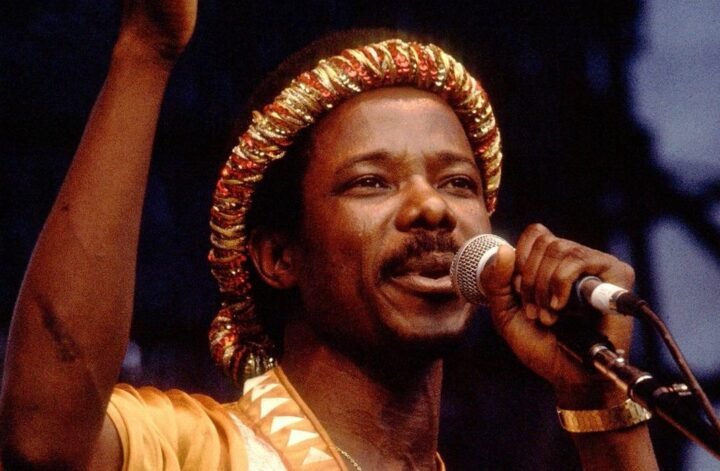There are people who make music and there are some of them, very few actually, who are really destined to make music. With vibrant rhythms and lively melodies of juju music, King Sunny Ade as he is globally known, etched his destiny as a titan of talent and tenacity in the heart of the universe. As he celebrates 77 years of life, his journey from humble beginnings in Ondo to international acclaim stands as one of Africa’s gods of music.

Born Sunday Anthony Adeniyi Adegeye on September 22, 1946, in the tranquil town of Ondo, King Sunny Ade defied familial expectations, choosing a path deeply embedded in the rhythms of juju music. With unwavering resolve, he dropped out of St Charles Grammar School in Osogbo in 1963 to pursue his passion for live music, embarking on a lifelong odyssey of melodic exploration and cultural influence.
Sunny Ade’s musical odyssey began under the guidance of his first tutor, Moses Olaiya (Baba Sala), who imparted the foundational elements of music. Embracing a vision to expand and elevate juju music beyond its traditional boundaries, Ade introduced elegance, flamboyance, and dignity to live performances, captivating audiences both within Nigeria and on the international stage. Through innovation and dedication, he transformed the landscape of juju music, adopting new instruments, increasing the band’s capacity, and enriching the percussive experience.

The ascent to musical prominence was not without its trials. Initially forming the Sunny Adex and His High Society Band, the young artist faced discouragement when his debut album “Alaanu l’Oluwa” sold a mere thirteen copies. Undeterred, he harnessed his resilience, eventually striking gold with “Challenge Cup” in 1968, a turning point that set him on an upward trajectory within the Lagos music scene.
Sunny Ade’s unwavering determination and cultural adaptability played pivotal roles in his enduring success. Fusing his deep-rooted cultural heritage into his music, he crafted a unique style characterized by melodic exploration and socially relevant themes. Hits such as “Esubiribiri,” “Synchro System,” “Ori Mi,” “Searching For My Love,” “Sweet Banana,” and “Merciful God” echo his roots and philosophical musings on life.

In the realm of musical leadership, King Sunny Ade emerged as the undisputed icon of juju music in Nigeria. Despite challenges and shifting musical trends, he stood tall, refusing to be confined by a singular style. His influence on the global stage was underscored by a high-profile signing with Island Records in the United States, propelling juju music into the international spotlight.
Beyond his musical endeavors, King Sunny Ade demonstrated a profound commitment to artist rights. His advocacy within the industry, including his involvement with the Performing Musicians Association of Nigeria (PMAN) and the Musical Copyright Society of Nigeria (MSCN), showcased his dedication to fostering a supportive environment for fellow musicians.
In honoring King Sunny Ade’s exceptional ambassadorship, UNICEF recognized his contributions during the Sports Aid activities in New York and before the UN General Assembly Special Session on Africa in 1986. His influence extended beyond the world of music to the big screen, where he made a mark with roles in films such as “Fopomoyo” and “Olu Omo.”
As King Sunny Ade turns 77, his legacy as a pioneer of juju music remains unparalleled. He stands as a beacon of cultural resilience and musical innovation, reminding us that destiny, fueled by unwavering dedication, can indeed rewrite the very fabric of our lives.

In celebrating King Sunny Ade at 77, we pay homage to a maestro whose melodies have transcended borders, leaving an indelible mark on the world of music and showcasing Africa’s vibrant cultural tapestry to the world.





